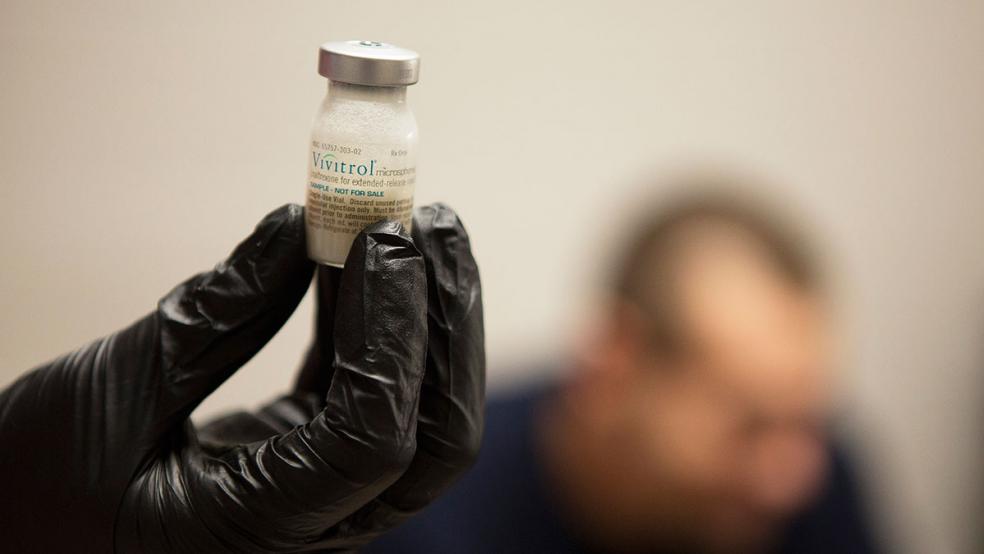A bruising internal GOP battle in the Senate over Medicaid funding to address the deadly prescription drug abuse epidemic throughout the country may well jeopardize passage of the Republicans’ highly secretive plan to replace the Affordable Care Act.
Conservatives’ efforts to slash spending on Medicaid by more than $800 billion over the coming decade and roll back expanded Medicaid coverage for low-income, able-bodied, childless adults in 31 states and the District of Columbia is a major stumbling block to an agreement in the Senate.
Related: Obamacare Repeal Could Be a Big Setback for the Fight Against Addiction
Moderate Republicans from states caught in the throes of the opioid epidemic – including Sens. Rob Portman of Ohio, Susan Collins of Maine and Shelley Moore Capito of West Virginia – are worried that the cuts would torpedo Medicaid coverage for drug addiction and mental health treatment.
How McConnell manages to resolve the Medicaid spending dispute between his party’s conservatives and moderates remains to be seen. But efforts to cut Medicaid spending including funding for drug treatment couldn’t have come at a more inopportune time.
The opioid crisis is so bad now that in 2014 nearly 1.3 million Americans turned to hospital emergency rooms or inpatient care for drug overdoses.
Related: As Heroin Addiction Surges, Obama Orders New Treatments
A new study based on 2014 data by the federal Agency for Healthcare Research and Quality (AHRQ) showed a 64 percent increase for patient care and 99 percent increase in emergency room visits compared to the previous year. The problem is so severe in Maryland that Baltimore City’s health commissioner has had to ration naloxone, a medication used to reverse the symptoms of drug overdoses.
Prescription drug painkillers were responsible for over 33,000 deaths in 2015 alone, and Maryland has seen opioid-related deaths involving fentanyl and other dangerous drugs nearly quadruple since 2010. The nationwide opioid epidemic has alarmed the White House, members of Congress, governors, mayors and law enforcement and public health officials.
Beyond the tragic death toll, the opioid epidemic is costing society and the economy tens of billions of dollars annually in medical costs, public health and law enforcement operations, and lost productivity.
Related: As Heroin Addiction Surges, Obama Orders New Treatments
A study published last October in the journal Medical Care estimated the cost of a drug overdose, abuse, and dependency at $78.5 billion annually. About one-third of the total costs is attributed to health care and insurance coverage, while about a fourth of the costs is picked up by the public sector, including law enforcement agencies, the National Center for Injury Prevention and Control reports.
NCIPC researchers drew on a wide range of data from a societal perspective to estimate the “monetized burden” of prescription opioid overdose, abuse, and dependence in the United States. Some experts say the study vastly underestimates the total societal cost of the drug epidemic.
Portman, Capito and other moderates will get a much clearer picture of what Senate Majority Leader Mitch McConnell (R-KY) has in store for the Medicaid program and related drug treatment programs when McConnell finally unveils a plan Thursday morning that he has been cobbling together in private with a few trusted aides and members of the leadership.
Overall, millions of people qualified for the first time for mental health and drug addiction treatment programs through expanded Medicaid, their employer health insurance or other private market plans, thanks to provisions of the Affordable Care Act that the Republicans are now determined to repeal.
Related: US Death Rate From Heroin and Opioid Abuse Soars
Portman and Capito have argued that existing federal funding for combating the prescription drug crisis is woefully inadequate and would be more than offset by the cuts in the Medicaid program that conservatives in the House and Senate are seeking as part of health care reform legislation.
The two have pressed McConnell to consider including as much as $4.5 billion more each year during the coming decade for drug addiction treatment. That amount of funding would far eclipse the $1 billion that lawmakers included in last year’s 21st Century Cures Act legislation to cover just two years of treatment.
Portman has made it clear that he would oppose the bill unless there is more Medicaid money for drug treatment. “Any replacement is going to have to do something to address this opioid crisis that is gripping our country,” Portman said on Tuesday.
The Republicans hold a 52-48 seat majority in the Senate and will need at least 50 Republican votes to pass the health care legislation next week under budget reconciliation rules that require only a simple majority for passage. Because the Democrats are united against the bill, McConnell can only afford to lose two Republican votes and still pass the bill, with Vice President Pence casting the tie-breaking vote.





